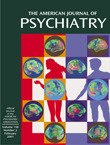Topiramate for Bulimia Nervosa in Epilepsy
Ms. A was a 34-year-old right-handed woman. Although she did not walk until she was 19 months of age, her intellectual development was considered age-appropriate during her school years. By age 8 she had began to experience a depressed mood, reduced motivation, compulsive overeating, excessive weight gain, and insomnia. She did not receive psychiatric treatment until age 16; that treatment consisted of individual psychotherapy. Despite recurrent depressive and vegetative symptoms, she graduated from high school and college and entered a graduate-level professional school. While in professional school she began to induce vomiting with her fingers or syrup of ipecac. She continued purging several times per week for the next decade. Her bulimic symptoms did not respond to treatment with fluoxetine, sertraline, or venlafaxine.After graduation from professional school at age 29, Ms. A suffered two losses of consciousness. These were preceded by “altered visual perception” and an intense sensation of thirst. The second loss of consciousness was associated with tonic posturing of all of her extremities. Metabolic derangements secondary to her eating disorder were suspected but could not be confirmed. An EEG revealed left temporal slowing and left anterior temporal sharp waves. The results of computerized tomography and magnetic resonance imaging scans of her brain were unremarkable. She was prescribed phenytoin therapy.Ms. A’s convulsions ceased when she had maintained adequate blood levels of phenytoin for about 5 years. She experienced occasional auras, which often included the sensation of thirst. Phenytoin therapy had no effect on her binge eating or purging. She had recurrent depressive episodes and one episode of self-mutilation with broken glass. After 5 years of phenytoin treatment, the auras began to appear more frequently, and she had a partial complex seizure with clonic movements of the right arm and leg, despite having a serum phenytoin level of 23.4 μg/ml. Topiramate was prescribed and gradually increased to 150 mg/day. Her auras and convulsions disappeared. In addition, she experienced a reduced appetite and a 10-lb weight loss. She became less concerned about her weight and had a reduced desire for binge eating, purging, and self-mutilation. As of this writing, she has remained free of these symptoms for 15 months.
References
Information & Authors
Information
Published In
History
Authors
Metrics & Citations
Metrics
Citations
Export Citations
If you have the appropriate software installed, you can download article citation data to the citation manager of your choice. Simply select your manager software from the list below and click Download.
For more information or tips please see 'Downloading to a citation manager' in the Help menu.
View Options
View options
PDF/EPUB
View PDF/EPUBGet Access
Login options
Already a subscriber? Access your subscription through your login credentials or your institution for full access to this article.
Personal login Institutional Login Open Athens loginNot a subscriber?
PsychiatryOnline subscription options offer access to the DSM-5-TR® library, books, journals, CME, and patient resources. This all-in-one virtual library provides psychiatrists and mental health professionals with key resources for diagnosis, treatment, research, and professional development.
Need more help? PsychiatryOnline Customer Service may be reached by emailing [email protected] or by calling 800-368-5777 (in the U.S.) or 703-907-7322 (outside the U.S.).

